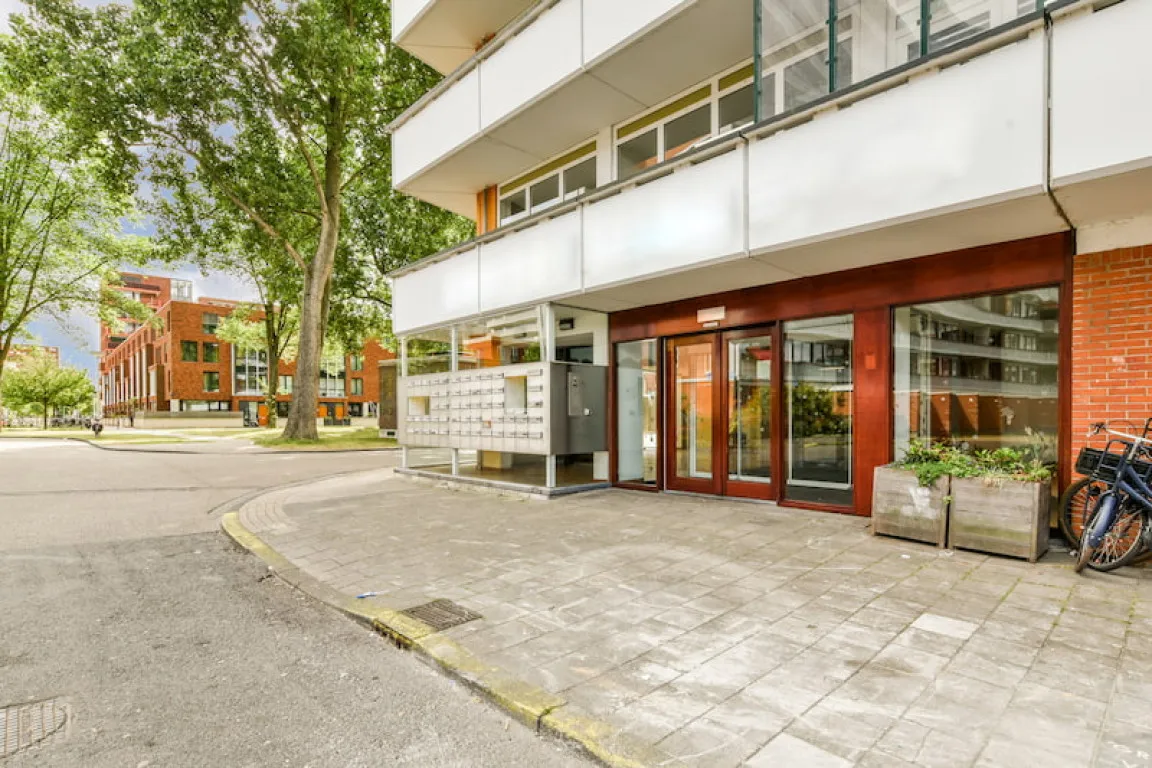Do you want to start a shophouse property business from scratch? It could be a promising investment opportunity, especially if you implement the right strategies.
In the shophouse property business, understanding effective strategies, investment tips, and ways to save on construction costs is key to achieving optimal results. This article will discuss the essential steps you need to know before running a shophouse property business.
Starting a shophouse property business requires capital and a deep understanding of the market and the right strategies. From conducting market research, and determining the ideal rental price, to implementing effective promotional strategies, all these aspects play a crucial role in the success of your property business.
Check out the following tips and guidelines on how to start a shophouse property business to maximize your revenue!
How to Start a Shophouse Property Business
The popularity of the shophouse property business continues to rise due to its resilience against inflation and its potential for long-term profits. Additionally, this type of investment is considered safer compared to other investment options, especially when the location, building structure, and quality meet the desired criteria.
1. Understanding Market Research
Market research helps you understand the demand and supply conditions in the area you’re targeting. By identifying the potential tenants or buyers in that area, you can better determine the appropriate pricing and facilities to offer. Furthermore, this research also allows you to identify competitors in the vicinity and assess the strengths and weaknesses of their properties.
2. Determining the Ideal Rental Price
The rental price you set must be competitive and in line with the market conditions, the property's location, and the available facilities. To determine the ideal price, you need to survey similar properties in the surrounding area to ensure the price still attracts potential tenants and ensures profitability.
Additionally, to set the right rental price, you need to also consider inflation rates and maintenance costs to ensure stable income in the future.
3. Preparing Important Documents
Next, you need to prepare several documents, including the land certificate, Building Approval, and proof of payment for Land & Building Tax (L&B Tax).
These documents provide legal security for both the property owner and the tenant to bring reassurance to both parties. Additionally, you need to also prepare a clear lease agreement outlining the rights and responsibilities of each party.
4. Involving a Notary
A notary plays a crucial role in verifying property ownership documents, drafting lease agreements, and ensuring that the rights and obligations between the owner and tenant are clearly established. A notary can also help verify the legality of the land and building to ensure that your shophouse property business runs smoothly without legal obstacles.
5. Conducting Effective Promotion
Effective promotion is key to attracting potential tenants in the shophouse property business. You can expand your reach and attract a larger audience by using digital marketing strategies like social media, paid ads, and property listing websites. As additional steps, you can also create engaging property descriptions, high-quality photos, and video tours.
Read also: Reinforced Concrete: Definition, Advantages, and Types
Building a Shophouse with High Potential
A shophouse built with a well-thought-out concept and a strategic location tends to have added value and opportunities to be rented or sold at a higher price. Here are several aspects to consider when building an attractive shophouse with great profit potential.
1. Choosing Easy Access
A shophouse located in an easily accessible area, whether by private vehicle or public transportation, will attract more potential tenants. Also, you should consider the availability of sufficient parking space to ensure tenant comfort. A shophouse located on a main road or in a busy area allows visitors to access it more easily.
2. Strategic Location
A strategic location could be in a commercial area, business center, or a rapidly developing area where many people gather for shopping, work, or recreation. A shophouse located near public facilities such as malls, markets, or government offices will be more attractive because visitors or potential tenants can easily access various necessities.
3. Adequate Building Specifications
A shophouse with a suitable size and layout will be more versatile for various types of businesses, ranging from retail stores, restaurants, to offices. Ensure that the building uses earthquake-proof materials, has good construction quality, and provides necessary facilities like toilets, air conditioning, and adequate electricity. A shophouse with an efficient layout and modern design will attract more potential tenants.
4. Support from Other Businesses
Support from other businesses around the shophouse property area can be a significant added value. For example, if your shophouse is located near shopping centers, office buildings, or dining establishments, it can attract more potential tenants. Tenants will be interested in shophouses located in areas that offer easy access to important facilities and complementary business areas.
Read also: 4 Common Renovation Mistakes to Avoid
Benefits of Investing in Shophouse Property Business
Investing in the shophouse property business offers several advantages for investors, especially for those looking to build long-term assets with relatively low risks. Below are some of the key benefits you can gain:
1. Low-Risk Investment
One of the key advantages of investing in shophouses is their stable demand, particularly if it is located in strategic locations. Also, commercial properties such as shophouses tend to have consistent demand, whether for rental or resale. The investment risk is also more manageable because shophouses are less affected by daily market fluctuations.
2. Long-Term Asset Potential
A major attraction of the shophouse property business is its long-term asset potential. Investing in shophouses allows you to own assets whose value increases over time. In addition to earning passive income from rental, you can also rely on property value appreciation, which tends to remain stable year after year, especially in developing areas.
3. Inflation Resistance
Shophouses offer a significant advantage when it comes to inflation. As inflation drives up the cost of living, the value of physical assets like real estate typically rises as well. This means that property prices and rental rates usually increase during inflation, helping to protect and potentially even enhance the value of your investment.
Potential Risks in the Shophouse Property Business
In the shophouse property business, there are several risks and drawbacks that you need to consider to ensure your investment remains safe and profitable. By being aware of these risks from the start, you can anticipate and minimize their impact on your business.
1. Limited Demand
One risk in the shophouse property business is low demand in certain locations. Not every location is highly attractive to potential tenants, especially if the shophouse is in a less crowded or non-strategic area. Limited demand can arise due to a lack of nearby facilities, difficult access, or an underdeveloped area.
2. Risk of Tenants Defaulting
Having reliable tenants is crucial for the success of your property business. However, there is always the risk that tenants may breach the lease agreement, which could involve late payments or even vacating the property before the lease term ends.
3. Tenant Business Failure Risk
Another common risk in the property business is the failure of a tenant's business. If a tenant's business goes bankrupt, they may struggle to continue paying rent. This can negatively affect your income as a property owner.
Building a successful shophouse property business requires careful planning and the use of high-quality materials. Every step, from market research to constructing a high-potential property, plays a crucial role in ensuring the long-term success of your investment. With proper planning, your shophouse property business can become a valuable asset and provide sustainable profits.
Are you currently building or planning to build a shophouse? If so, then you should try Semen Merah Putih, a high-quality cement, for strong and durable construction.
With the latest innovations and advanced technology, this cement is perfect for a wide range of construction needs, from structural to non-structural applications such as foundations, bricklaying, plastering, and finishing.
This product offers optimal strength to ensure your project meets the highest standards. Contact us now for the best solutions and to ensure the success of your project!



